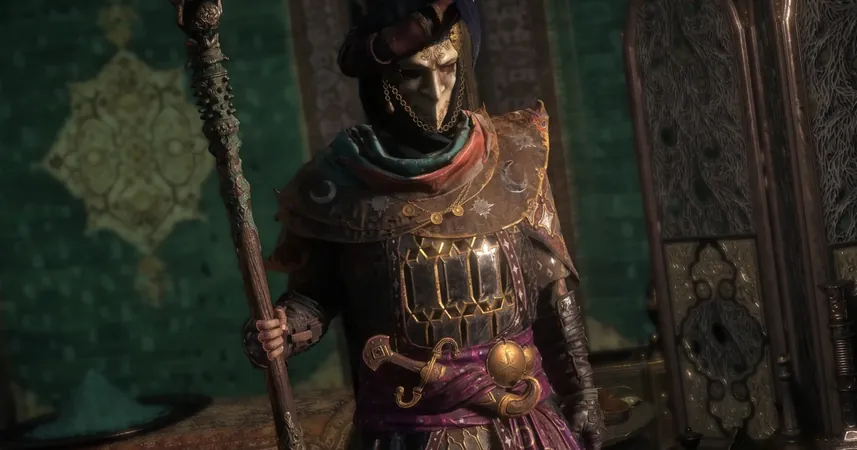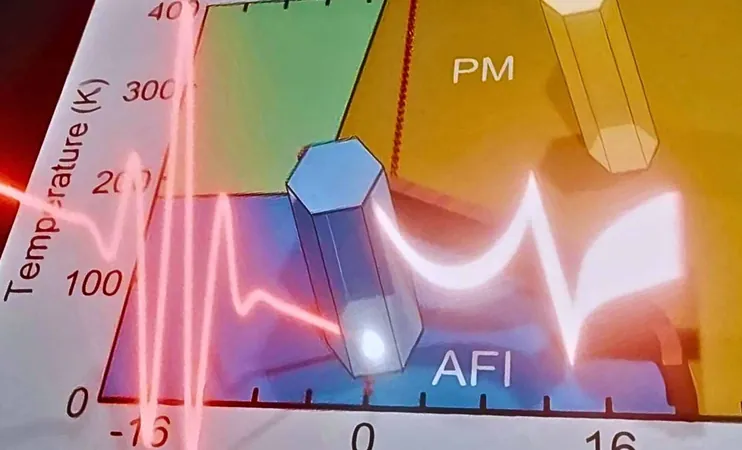
South Korea's President Yoon Ignites Fury with Defiant Defense of Martial Law
2024-12-12
Author: Wai
Introduction
In an astonishing turn of events, South Korean President Yoon Suk Yeol delivered a fiery speech on Thursday, staunchly defending his controversial martial law decree and defiantly refusing calls for his resignation. This marked a significant shift from his previous contrite tone seen just last weekend, sparking further outrage amid a nation embroiled in mass protests.
Martial Law Declaration
On Dec. 3, Yoon made the unexpected decision to declare martial law, deploying troops to the National Assembly in what he claimed was an attempt to safeguard the country against "anti-state" opposition parties. Despite massive protests demanding his resignation or arrest, Yoon’s resolve appeared unshaken during his speech, as he asserted, “I will proudly confront it, whether it’s impeachment or investigation. I will fight to the end.”
Public Outcry and Protests
The political landscape has been turbulent since Yoon's martial law declaration, which was met with an overwhelming backlash. Tens of thousands have rallied against him, and his own party even suggested he step down early to mitigate the chaos. According to opinion polls, a significant majority of South Koreans disapprove of his handling of the situation, with many supporting impeachment efforts that could be attempted again this Saturday.
Protests Escalate
Following his speech, the streets echoed with cries of “Arrest Yoon Suk Yeol!” as protesters gathered outside his residence, continuing to demonstrate against his tenure. Analysts opine that the president’s fervent address was not just an attempt to rally his right-wing base but also an effort to strategically position himself ahead of potential impeachment proceedings. “This is a battle for public opinion,” commented Ahn Byong-jin, a professor of political science at Kyung Hee University.
Political Polarization
Yoon’s remarks have further polarized an already divided political environment, as the opposition prepares to reintroduce impeachment motions. While some members of his own party have openly defied him, others remain loyal, deepening the rift within the ruling People Power Party. Tensions escalated during a recent party meeting, showcasing the internal conflict as some members called for his resignation while others staunchly supported him.
Impending Legal Challenges
As investigations into the legitimacy of his martial law are ongoing, Yoon's position hangs precariously amid threats of insurrection charges, a serious offense that could carry life imprisonment. Despite this, he maintains that his actions were constitutional and necessary to preserve order amidst what he characterizes as chaotic opposition resistance.
Historical Context
The controversy surrounding Yoon’s martial law declaration is reminiscent of past political upheavals in South Korea, bringing to mind the impeachment of former President Park Geun-hye in 2016. Yet, analysts caution that the stakes in Yoon's case are significantly higher. Political scientists assert that the dynamics of public sentiment and party loyalty are shifting, and the risk of his impeachment grows each day as resentment against his leadership mounts.
Conclusion
In closing, President Yoon's unexpected and defiant assertion of power could either solidify his leadership among loyal supporters or ignite a political wildfire that could consume his presidency. As the nation holds its breath, many are left wondering: will this be the moment the tides turn against him, or will he manage to weather the storm and restore his authority? The coming days will be crucial in determining the future of his presidency and the political landscape of South Korea.



 Brasil (PT)
Brasil (PT)
 Canada (EN)
Canada (EN)
 Chile (ES)
Chile (ES)
 España (ES)
España (ES)
 France (FR)
France (FR)
 Hong Kong (EN)
Hong Kong (EN)
 Italia (IT)
Italia (IT)
 日本 (JA)
日本 (JA)
 Magyarország (HU)
Magyarország (HU)
 Norge (NO)
Norge (NO)
 Polska (PL)
Polska (PL)
 Schweiz (DE)
Schweiz (DE)
 Singapore (EN)
Singapore (EN)
 Sverige (SV)
Sverige (SV)
 Suomi (FI)
Suomi (FI)
 Türkiye (TR)
Türkiye (TR)